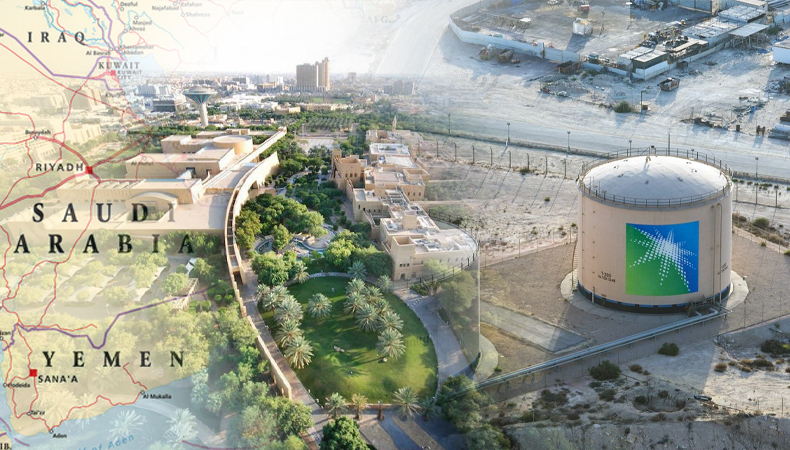Saudi Arabia’s plan to go green despite being top oil exporter


This was not a climate conference or an environmental group, as the slide implied. TIME was permitted inside Saudi Aramco’s normally-secret R&D facility, a fossil fuel behemoth that dwarfs companies like ExxonMobil and Chevron. The largest oil exporter in the world is actively pumping petroleum and transferring it into the tanker hulls that travel the oceans while announcing loudly that it hopes to achieve net-zero carbon emissions within its borders by 2060.
Since two-thirds of Saudis are under 35, climate change is not a hypothetical concern for them. Heat peaks in the summertime at 120°F. Last year, climate scientists predicted that in the next years, the Middle East’s temperatures could “possibly pose a hazard to human existence.” According to Ali al-Saffar, a regional expert at the International Energy Agency in Paris, “These countries are already in a crisis.” They have a stake in the outcome.
Saudi Arabia is not entirely innocent of the effects of global warming; according to environmentalists, Saudi Aramco has produced more than 4% of the world’s greenhouse emissions since 1965. Since the 1930s, when California wildcatters struck a gusher and transformed a tribal kingdom into a global oil power, Saudi Arabia has tapped an unfathomable amount of oil—roughly 267 billion barrels of proven oil reserves, or about 15% of the world’s total—from this location on the edge of the Arabian Desert.
Related Posts
More than 80 years later, Saudi Arabia still dominates the global oil market. One in ten of the world’s daily oil barrels are produced there, and more than 7 million of those barrels are sold on foreign markets, generating enormous wealth for the ruling royal family and their state-owned corporation Aramco, whose profits soared to around $110 billion last year.
Nevertheless, despite years of profitable production, a worldwide crisis now threatens to undermine the Saudis’ coveted position. The vast majority of nations have made commitments to reduce their reliance on fossil fuels, the primary contributor to global warming. That might include the biggest change in energy since the invention of the automobile more than a century ago.
The question for Saudi Arabia is whether it can maintain its position as a global leader in the oil industry and participate in the fight against climate change, or whether its efforts to diversify its economy away from its heavy reliance on oil will be too little, too late, or otherwise fail to live up to the criticism that they have received.
If Saudi Arabia’s bet takes off, it may emerge through the global energy shift as the world’s unavoidable fossil-fuel power, paradoxically bragging of its own clean-energy, environmentally good nation. According to Jim Krane, a specialist in energy geopolitics at Rice University in Houston, “they like to have their cake and eat it too.” “The Saudis want to dominate the world oil market till the very end. They desire that the final drop of oil produced comes from a field in Saudi Arabia.
The nation has plenty of funds to carry out its ambitious agenda. With a market cap of over $2.3 trillion, Aramco is currently the second-most valuable firm in the world (after Apple). Its earnings have virtually doubled this year despite significant price rises at the gas pumps. OPEC, the international cartel of 13 major oil-producing nations, now has the ability to essentially impose quotas within the kingdom of just 35 million people, which might have an influence on financial markets around the world.
Given that Crown Prince Mohammed bin Salman, also known as MBS, is the nation’s de facto ruler and is only 37 years old, that unique position might remain for decades.
The much older half-brother of MBS and Saudi Energy Minister Prince Abdulaziz bin Salman tells TIME over tea in his office in Riyadh that “the need for oil will continue to grow.” I’m not sure at what level he means. “Anyone who claims to have a firm understanding of when, where, and how much is unquestionably living in a fantasy.”
MBS moved $80 billion from the oil business to the Public Investment Fund, or PIF, the nation’s sovereign wealth fund, in February of last year. The fund’s assets have increased significantly since the pandemic struck, reaching about $620 billion. This is because the fund took advantage of the lockdown dip to invest heavily in stocks of Netflix, Carnival Cruises, Marriott hotels, Lucid Motors of California, and other companies that were negatively impacted by global lockdowns.








